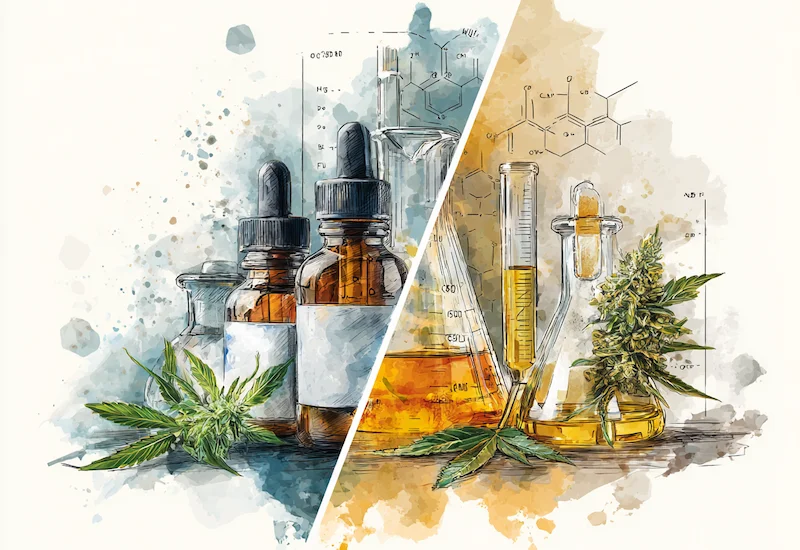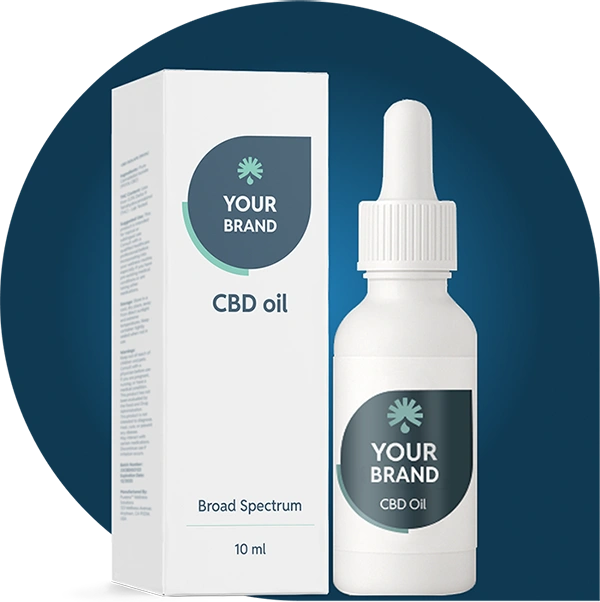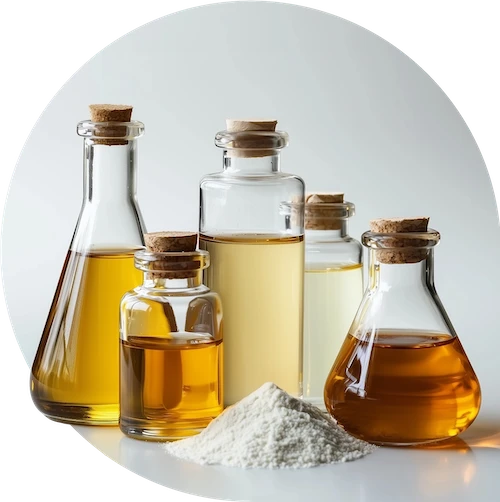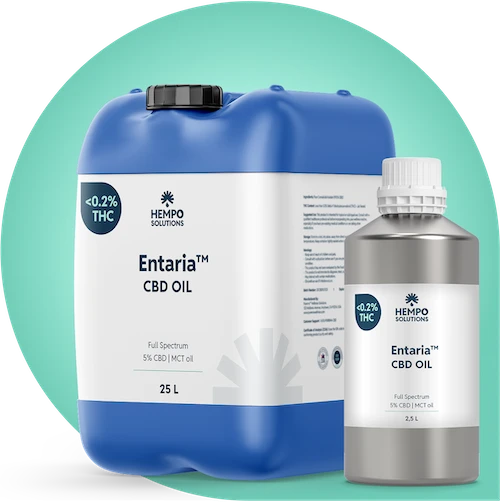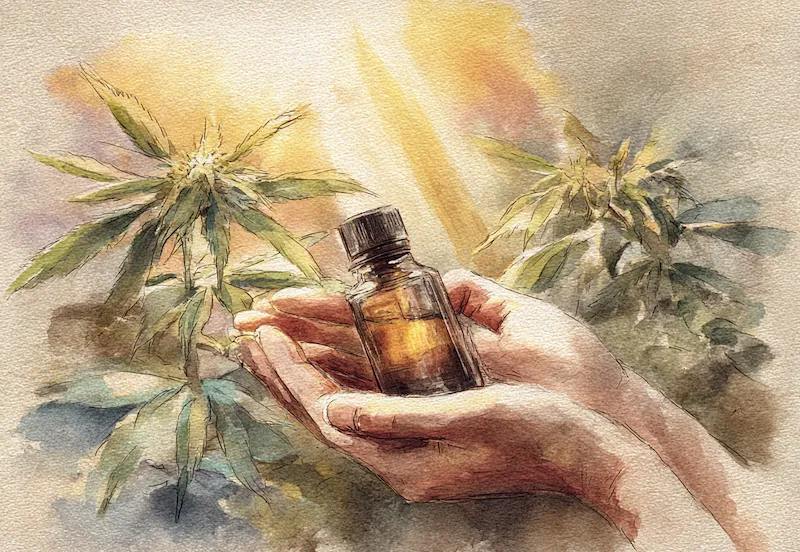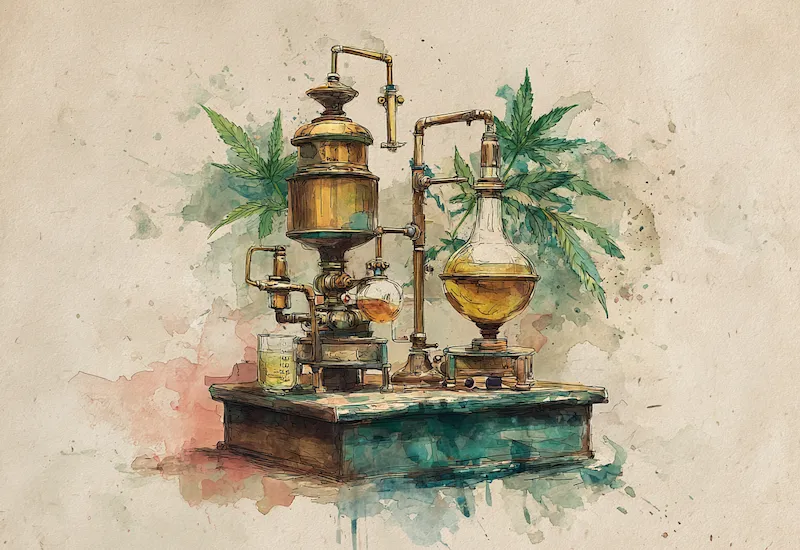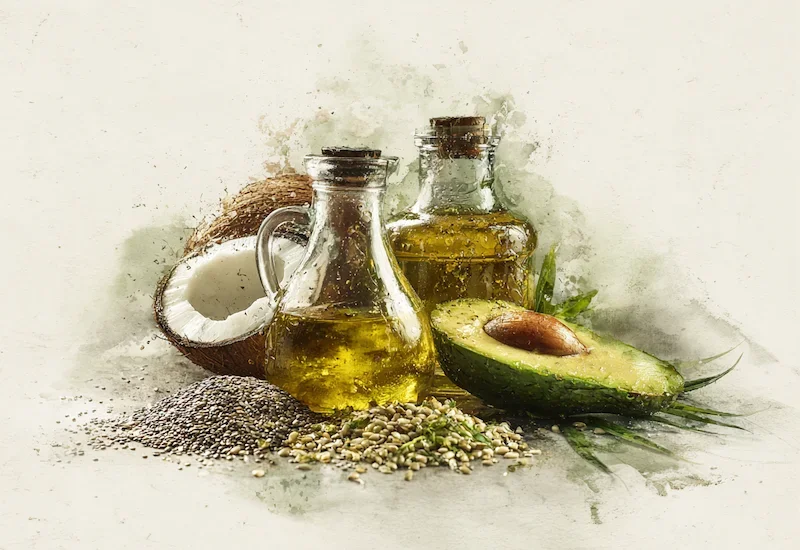What Are White Label CBD Products?
White label CBD products are pre-formulated, ready-made products produced by a manufacturer but sold under your own brand. This model is popular across industries such as cosmetics and supplements, helping businesses quickly expand their range without needing to manage production themselves.
For CBD brands, white labelling means selecting from a manufacturer’s existing catalogue of products, which are then produced, packaged, and labelled to match your brand specifications. It eliminates the need to invest in farming, extraction, formulation, and testing. Typical minimum order quantities (MOQs) range from 50 to 250 units per SKU, making it accessible even for small or new brands.
However, it’s essential to choose your manufacturing partner carefully. Not all white-label products are created equal in quality, compliance, or consistency. Reviewing third-party lab tests, certifications, and production standards is crucial to ensure you’re offering products your customers can trust.
The Origins
The term “white label” comes from the world of radio and club DJs in the 20th century. It referred to exclusive, unreleased vinyl records that were distributed with plain white labels instead of branded covers. This allowed DJs to test new tracks in clubs without revealing the artist or track name. In business, the concept evolved to mean unbranded products produced by one company and sold by others under their own branding.

White Label CBD Process
The white label process in the CBD industry is straightforward but requires careful planning to ensure you choose the right partner. Typically, it works like this:
Research suppliers: Identify reputable white-label CBD manufacturers. Look for those with a strong track record, a broad product catalogue, and transparent third-party testing.
Evaluate the range: Review their product catalogue to see if the variety, formulations, and formats match your brand vision.
Check details: Compare pricing, typical minimum order quantities, and average fulfilment times. Consider the supplier’s ability to scale with your business as it grows.
Order samples: Always test product samples from multiple manufacturers. Assess quality, packaging, labelling, and customer experience.
Select your partner: Choose the manufacturer that best fits your needs, then finalise your agreement and branding requirements.
Place your order: Once agreed, you can order finished, branded products ready for sale, with your manufacturer handling production, packaging, and labelling.
By following this process carefully, brands can choose reliable CBD manufacturer and start selling white-label products that meets their quality standards and customer expectations.
What are Private label CBD products?
Private label CBD products are manufactured specifically for one brand using a formula tailored to their requirements. Unlike white label products, which multiple companies can sell under different names, private label products provide a brand-exclusive formulation and ingredient profile.
This approach helps brands differentiate themselves in the market. Private label development can range from creating an entirely new formula from scratch to modifying existing base products by adding botanicals, or other functional ingredients. This flexibility enables faster development when needed while still delivering a custom product to market.
By partnering with an experienced manufacturer, brands gain access to technical expertise, ensure compliance, and avoid the heavy investment of building in-house production capabilities.
The Origins
The term private label originated in the retail industry in the late 19th century. Large stores began selling products manufactured by third-party producers but branded under the retailer’s own name. This approach allowed retailers to offer exclusive products not available from competitors.
Over time, private labelling expanded into many sectors, including food, cosmetics, supplements, and CBD. The model enables brands to differentiate themselves with unique formulations and build loyalty through products tailored to their specific target market.

Private Label CBD Process
With private label CBD, a retail brand partners with a manufacturer to create a unique product formulation that no other brand can sell. Unlike white label options that are pre-made, private label development is a collaborative process. Brand representatives work with the manufacturer’s formulation specialists to plan the desired ingredients and features. The manufacturer advises on technical feasibility to avoid issues like crystallisation, poor shelf life, or instability.
Once clear goals are set, sample batches (often three at a time) are produced and tested. Feedback is used to refine the formula, with multiple iterations if needed until the final, market-ready product meets quality standards and customer expectations.
White label CBD vs. private label CBD
Choosing between white label and private label CBD is an important decision for any brand. Each model offers distinct advantages depending on your goals, budget, and timeline. White label is best suited for fast, cost-effective market entry with ready-made products, while private label allows you to develop exclusive formulations tailored to your brand. Understanding the core differences between these approaches helps you align your strategy with customer expectations and market opportunities.
Pros and Cons of White label CBD
| Pros | Cons |
|---|---|
| Lower Upfront Investment: No need for costly R&D, formulation development, or production setup. | Limited Differentiation: Products are often identical to those sold by competitors. |
| Fast Market entry: Pre-formulated products let brands launch quickly without lengthy development cycles. | Less Brand Control: Cannot customise formulations beyond packaging and branding. |
| Proven, Tested Formulas: Products are already market-ready, typically with existing compliance documentation and testing. | Potential Quality Variance Between Suppliers: Not all white-label manufacturers maintain equally high standards. |
| Simplified Compliance: Manufacturers provide COAs and ensure legal THC limits, easing regulatory challenges. | Limited Innovation: Can’t easily adapt to trends (e.g. novel ingredients, new delivery formats). |
| Lower Minimum Order Quantities (MOQs) Often starting from 50 – 250 units, accessible even for small or new brands. |
Dependence on Supplier’s Product Range: Your brand’s catalogue is limited to what the manufacturer offers. |
| Consistent Quality: Established manufacturers have standardised processes delivering reliable, repeatable product quality. | Margins Can Be Tighter: Lower differentiation can force brands to compete more on price, reducing profitability. |
| Broad Product Range: Access to many SKUs (gummies, oils, topicals) without developing each from scratch. | Compliance Risks if Suppliers standards are low: If the manufacturer cuts corners, your brand carries the liability. |
Pros and Cons of Private label CBD
| Pros | Cons |
|---|---|
| Exclusive Formulas: Ability to offer unique products that competitors cannot easily replicate. | Higher Minimum Order Quantities: Typically requires larger initial commitments per SKU. |
| Brand Differentiation: Stand out in a crowded market with tailored ingredients and claims. | Long Development Timelines: Custom formulations take time to develop and test. |
| Higher Perceived Value: Premium, custom formulations can justify higher retail pricing. | Upfront R&D Costs: Investment in formulation work, stability testing, and packaging development. |
| Custom Ingredient Choices: Ability to add functional botanicals, adaptogens, flavours, or other targeted ingredients. | Regulatory Complexity: Custom ingredients may trigger additional compliance requirements. |
| Potential for Patents/Trade Secrets: Option to protect proprietary formulations. | Higher Product Costs per Unit: Custom formulations are typically more expensive than standard SKUs. |
Choosing the Right CBD Manufacturer
Choosing the right manufacturing partner is one of the most important decisions your CBD brand will make. Here are key factors to consider to ensure you choose a supplier who can truly support your growth:
Proven Retail Experience
An often-overlooked but important factor is whether the manufacturer also runs a successful retail CBD brand. Many manufacturers produce white-label products without testing them in real retail markets. A supplier with retail experience is more likely to offer well-formulated products that have been validated by customers.
Quality of Raw Materials
Examine the source and quality of the hemp used. Indoor-grown hemp generally provides superior quality compared to outdoor cultivation because of its controlled environment, consistent cannabinoid profiles, and lack of pesticide use. High-quality raw materials are the foundation of effective and safe CBD products.
Third-Party Lab Testing
CBD concentration matters, but look beyond it. Review the full cannabinoid profile for meaningful levels of minor cannabinoids like CBG, CBN, and CBC, which support the entourage effect. Always verify that lab results include screening for pesticides and heavy metals. Hemp naturally absorbs heavy metals from soil, making these safety tests essential for high-quality products.
Regulatory Compliance
Make sure the manufacturer supplies all required compliance documents, such as MSDS (Material Safety Data Sheets) and PDS (Product Data Sheets). This is essential for legal distribution and shows professionalism to your customers.
Range of Products Offered
Consider whether the manufacturer’s product range will support your future growth. Choosing a supplier with an extensive catalogue helps you expand your line as your brand develops, keeping you competitive in a fast-moving market.
Communication and Support
Strong communication is essential. Prioritise suppliers willing to meet you via video calls. Speaking directly helps you understand who you’re working with and assess their commitment to supporting your success.
Technical Expertise
Your manufacturer should do more than produce products. They should be able to advise on formulation stability, ingredient interactions, and regulatory requirements. A technically skilled partner helps you avoid costly mistakes and ensures your products meet customer expectations.
Summary
Choosing between White label and Private label CBD manufacturing is a crucial strategic decision for any brand. White label offers a fast, lower-cost way to launch proven products, while Private label delivers exclusive formulations that can set you apart in a competitive market. Understanding the differences, evaluating the pros and cons of each model, and selecting the right manufacturing partner will help you deliver high-quality, compliant products your customers can trust.
By carefully weighing your goals, budget, and target market, you can choose the approach that best supports your brand’s long-term growth and reputation in the evolving CBD industry.
